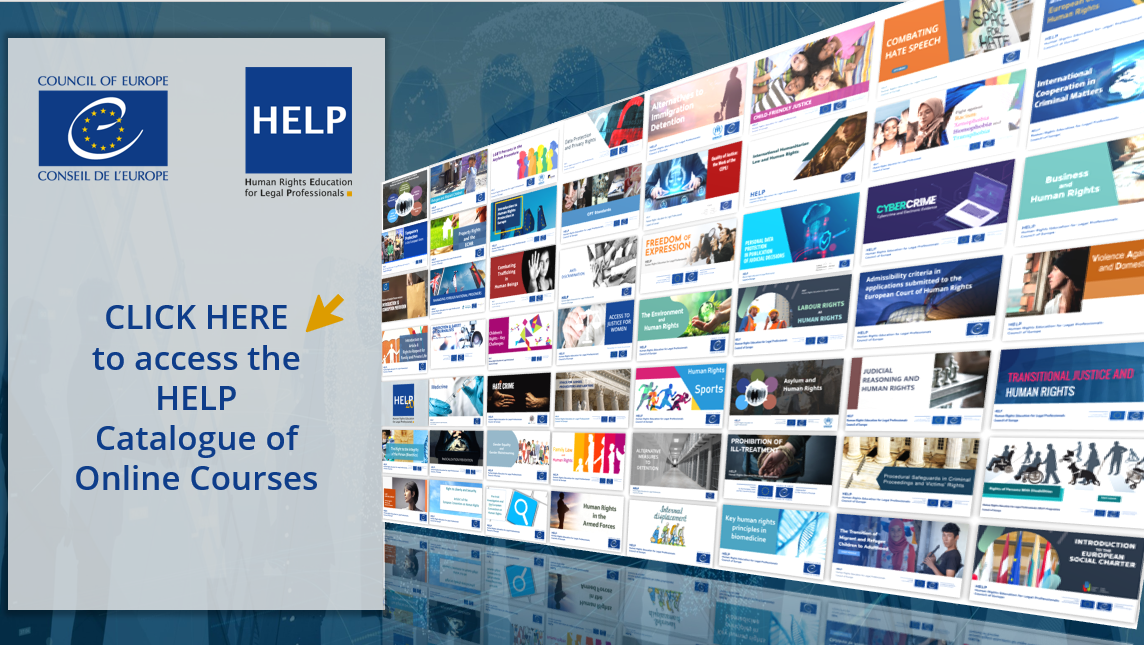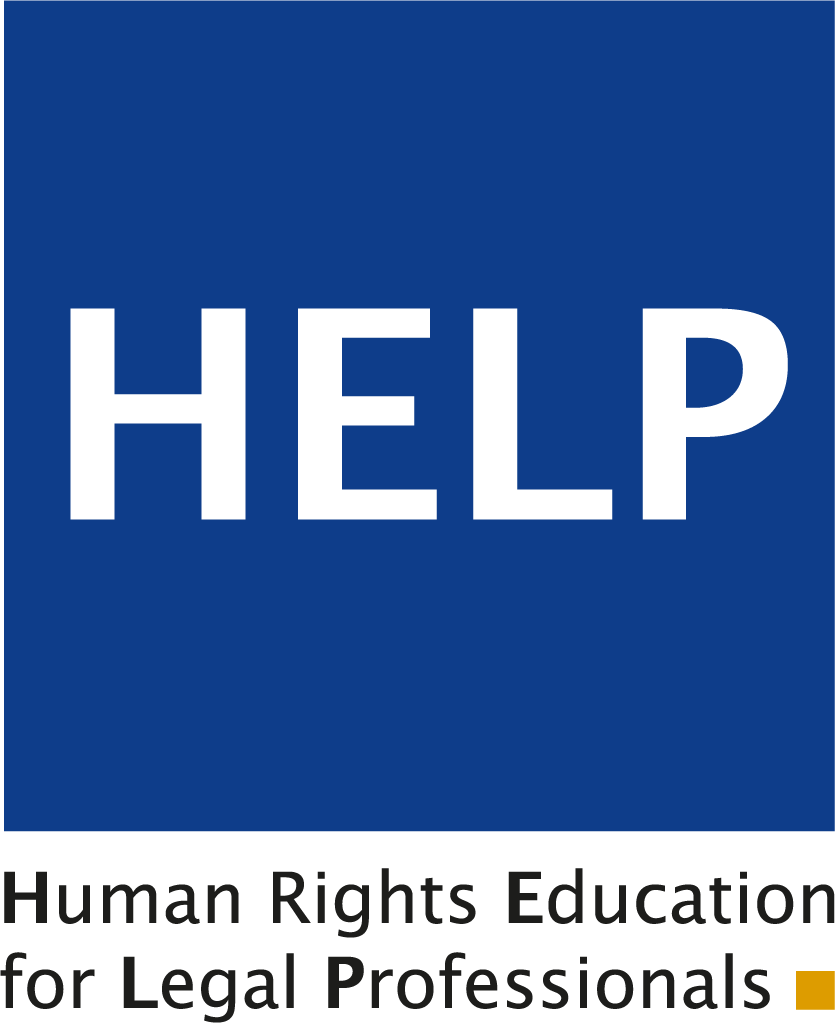HELP courses
The Council of Europe HELP online courses cover various human rights related topics, reflecting the different areas of work of the Council of Europe. They aim to enhance the knowledge of legal professionals on key human rights topics and thus contribute to a better protection of human rights on a national level.
As well as the European Convention on Human Rights (ECHR) and the case-law of the European Court of Human Rights, HELP covers other Council of Europe instruments such as the European Social Charter or CoE Conventions in key areas like data protection, violence against women or bioethics. Furthermore, with EU support since 2015, HELP online courses also cover the EU legal framework, including the EU Charter of Fundamental Rights and the case-law of the Court of Justice of the EU. Once HELP courses are ready, national versions can be developed complementing the European legal systems and jurisprudence with the national ones. These national courses help primarily judges, prosecutors and lawyers to apply European standards at national level in a practical way.
When contextualised to the national legislation and challenges, HELP courses also address the training needs identified by various Council of Europe monitoring mechanisms and support the implementation of ECtHR judgments pending execution. The HELP courses also contribute to achieving the objectives set in the EU Judicial Training strategy.
HELP courses are developed in line with the HELP Methodology: jointly with the respective content entities of the Council of Europe. Lawyers from the Registry of the European Court of Human Rights (ECtHR) are also involved in the development of HELP online courses. Increasingly, key partners of HELP such as the European Judicial Training Network (EJTN), the Council of Bars and Law Societies of Europe (CCBE) and the European Union Agency for Fundamental Rights (FRA) are also offering their expertise in the development of HELP courses.
HELP free online courses are hosted on the Council of Europe HELP e-learning platform.
In order to access them, you will need to log in to your HELP account. If you don’t yet have a HELP account, you can create one in less than 2 minutes.
Click here to create a HELP account
The HELP courses can be taken in the following ways:
SELF-LEARNING COURSES
Available publicly for unlimited access to anyone having an account on the HELP online platform. They are self-paced courses and once completed, you can obtain an individualised digital “Statement of accomplishment”.
To enrol in any of the HELP courses, go to the CoE HELP e-learning platform, log-in with your HELP account, browse the list of courses and click on the language code under the picture of your selected course. You can also click on the course titles in the catalogue to go the course of your choice, then click on the language code in which you wish to follow the course and enrol in the respective page.
Once enrolled, you can start and access the course [and resume where you left it last time] any time you want from the ‘My courses’ button.
The approximate duration indicated per course will appear on the digital self-generated ‘statement of accomplishment’ once the user completes the course.
How to enrol in HELP self-learning courses
TUTORED COURSES
The HELP tutored courses are organised in cooperation with a national partner institution, usually national training institutions for judges and prosecutors (JTIs) or Bar Associations (BAs). The tutored courses are facilitated/moderated by a HELP certified tutor, who was trained by the HELP Secretariat. Successful participants in HELP tutored courses are certified jointly by the HELP Programme and the national partner institution. If you are a legal professional and you would like to take a tutored course, contact the NTI or BA in your country, through the HELP Focal and Info Points.




